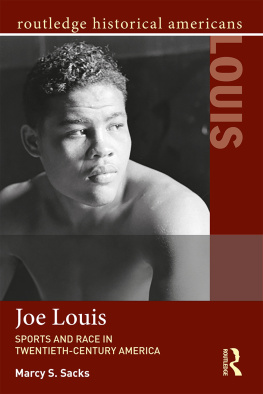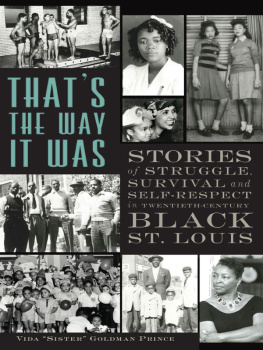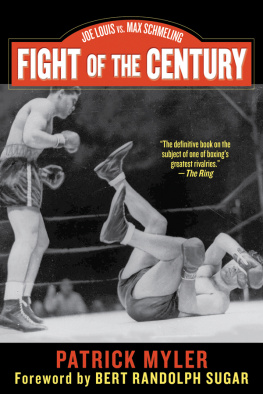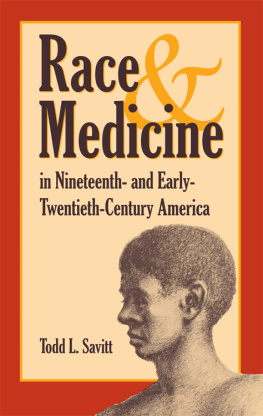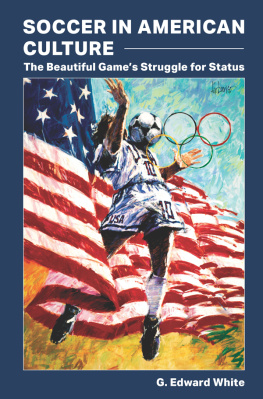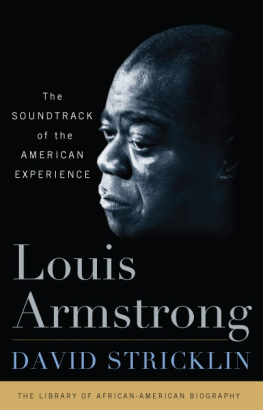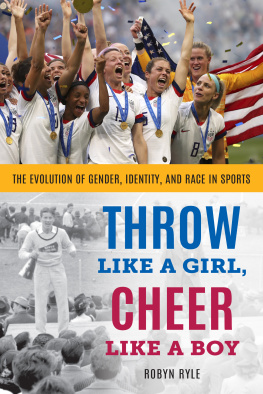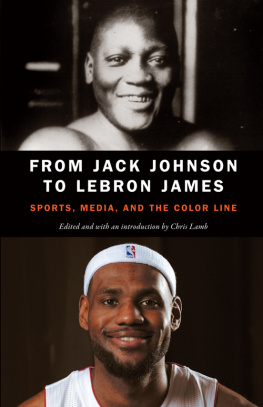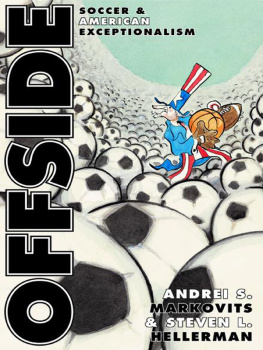JOE LOUIS
This insightful study offers a fresh perspective on the life and career of champion boxer Joe Louis. The remarkable success and global popularity of the Brown Bomber made him a lightning rod for debate over the role and rights of African Americans in the United States. Historian Marcy S. Sacks traces both Louiss career and the criticism and commentary his fame elicited to reveal the power of sports and popular culture in shaping American social attitudes. Supported by key contemporary documents, Joe Louis: Sports and Race in Twentieth-Century America is both a succinct introduction to a larger-than-life figure and an essential case study of the intersection of popular culture and race in the mid-century United States.
Marcy S. Sacks is the John S. Ludington Endowed Professor of History at Albion College in Albion, Michigan.
For Rodolfo, the only champion I need
JOE LOUIS
SPORTS AND RACE IN TWENTIETH-CENTURY AMERICA
MARCY S. SACKS

First published 2018
by Routledge
711 Third Avenue, New York, NY 10017
and by Routledge
2 Park Square, Milton Park, Abingdon, Oxon, OX14 4RN
Routledge is an imprint of the Taylor & Francis Group, an informa business
2018 Taylor and Francis
The right of Marcy S. Sacks to be identified as author of this work has been asserted by her in accordance with sections 77 and 78 of the Copyright, Designs and Patents Act 1988.
All rights reserved. No part of this book may be reprinted or reproduced or utilised in any form or by any electronic, mechanical, or other means, now known or hereafter invented, including photocopying and recording, or in any information storage or retrieval system, without permission in writing from the publishers.
Trademark notice : Product or corporate names may be trademarks or registered trademarks, and are used only for identification and explanation without intent to infringe.
Library of Congress Cataloging-in-Publication Data
A catalog record for this book has been requested
ISBN: 978-0-415-89564-4 (hbk)
ISBN: 978-0-415-89565-1 (pbk)
ISBN: 978-0-203-08165-5 (ebk)
Typeset in Minion Pro
by Deanta Global Publishing Services, Chennai, India
Visit the companion website: www.routledge.com/cw/sacks
CONTENTS
ROUTLEDGE HISTORICAL AMERICANS
SERIES EDITOR: PAUL FINKELMAN
Routledge Historical Americans is a series of short, vibrant biographies that illuminate the lives of Americans who have had an impact on the world. Each book includes a short overview of the persons life and puts that person into historical context through essential primary documents, written both by the subjects and about them. A series website supports the books, containing extra images and documents, links to further research, and where possible, multi-media sources on the subjects. Perfect for including in any course on American History, the books in the Routledge Historical Americans series show the impact everyday people can have on the course of history.
Oliver Wendell Holmes, Jr.: Civil War Soldier, Supreme Court Justice
Susan-Mary Grant
Belle La Follette: Progressive Era Reformer
Nancy C. Unger
Harriet Tubman: Slavery, the Civil War, and Civil Rights in the Nineteenth Century
Kristen T. Oertel
Muhammad Ali: A Man of Many Voices
Barbara L. Tischler
Sojourner Truth: Prophet of Social Justice
Isabelle Kinnard Richman
Andrew Jackson: Principle and Prejudice
John M. Belohlavek
Patrick Henry: Proclaiming a Revolution
John A. Ragosta
Ida B. Wells: Social Reformer and Activist
Kristina DuRocher
Jacques Marquette and Louis Jolliet: Exploration, Encounter, and the French New World
Laura Chmielewski
Harvey Milk: The Public Face of Gay Rights Politics
Eric Walther
Joe Louis: Sports and Race in Twentieth-Century America
Marcy S. Sacks
This book took far longer to finish than I ever imagined it would, though that makes its completion perhaps even sweeter than it would have been. For a time, I thought I would abandon the project altogether. My deepest thanks therefore go to those who gave me the space I needed to step away and who then welcomed me back when I was ready to return. First and foremost, that includes the staff at Routledge who consistently encouraged me without carping over the long delays and eventual hiatus. As I finally prepared to complete the manuscript, my editorial assistant at the press, Theodore Meyer, answered innumerable questions and held my hand through parts of the process that felt entirely mysterious. His patience and enthusiasm did wonders for my motivation to keep plugging away until it was finally done.
Paul Finkelman, the editor of the Historical Americans series at Routledge, is a marvel of knowledge and efficiency. He responded to the manuscript with incredible alacrity, and his mastery of subject matters well beyond his own area of professional focus helped me avoid mistakes. Pauls insights and suggestions most assuredly improved the final product. I am indebted to him for all he did to sharpen my argument.
Along the way, librarians, archivists, and other staff from the New-York Historical Society, the Library of Congress, the Connecticut State Library, Albion College (especially Allie Moore, Becky Markovich, and Michael VanHouten), the Schomburg Library, the New York Public Library, and the National Association for the Advancement of Colored People all assisted in securing material. In a tremendous act of generosity, a former Albion College student, Jayne Ptolemy, hunted down a specific resource for me at Yale Universitys Beineke Library while she was earning her doctorate there. Joan Eagen and Linda Wooden from Albion College did the careful, time-consuming work of transcribing documents and creating the bibliography.
I have been incredibly fortunate to receive funding from numerous sources. The Eisenberg Institute for Historical Studies at the University of Michigan provided me with a research affiliation, financial resources, and critical feedback at an early stage of the project. My special thanks go to Jay Cook for his careful reading of first drafts. And the National Endowment for the Humanities awarded me a We the People grant to support a sabbatical during which I conducted much of the research. I have endeavored to remain faithful to the spirit of that fellowship by illuminating an aspect of American life and culture through this biography. Albion College underwrote many research trips through the generosity of the Faculty Development Committee, and with the backing of the Faculty Personnel Committee and Albions Board of Trustees, I was named the John S. Ludington Endowed Professor of History with additional funds to support my work. None of this would have been possible without those resources.
Many people offered indirect help to this project. The group of men training at the boxing gym in Brooklyn, Michigan (stereotypically located in the basement of a Catholic church), welcomed me as a serious student of the sport when I became an amateur boxer early on. They not only allowed me to train with them, but they also shared their stories and dreams. Through their camaraderie, I gained a small taste of Joe Louis world. I also learned how difficult of a sport boxing is; the insistence by many of Louis contemporaries that he boxed mindlessly is simply untenable.
Scores of students who enrolled in my history courses over the years both inspired this project and helped me gain clarity about my argument. Discussions with them about the convergence of sports and race motivated my desire to write about Louis as a popular figure in twentieth-century America. Clare Corbould has been a dear friend and role model of productivity for years. I no longer remember how I was so lucky to meet her, but my life has been enriched by her long-distance presence in my life. My across-the-hall colleague, Deborah Kanter, gently encouraged me to rethink my decision to abandon the project. Her encouragement during a difficult time meant more than she realizes. Eddie Visco always had chocolate at the ready, and my sister, Lynne Sacks, was an exceptional resource for all of my procrastination needs. Michael Sherman provided the space in which I wrote the two hundred most important words of the entire manuscript. Ann Sullivan and Nick Salvatore sustained me with wonderful meals and camaraderie as I finished the writing.

